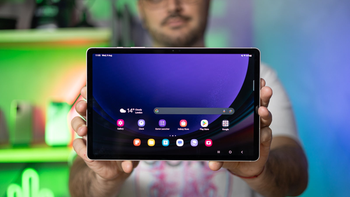PSA: Think twice before downloading this app that could cost Apple and Google millions

A judge in Brazil has now fined Apple and Google for distributing, in their respective app stores, FaceApp: an app that seemingly doesn't care for user privacy.
A few years ago, FaceApp stormed the internet with curious and slightly creepy AI-powered ways to get you to age or change your hair color without actually doing it in real life. Yours truly might have also played around with it, mixing photos of different celebrities to see what their potential offspring would look like (yep, that also used to be a feature).
FaceApp can manipulate faces and allows for extreme altering of photos, from changing your skin tone and hair color to adding 20 or more years to your age. But it's been a public secret for a while now that the app blatantly steals user data using a loophole in legal contracts.
The violation of user privacy (even though user consent is obtained, but with false pretenses) has made regulators in Brazil frown. Judge Douglas de Melo Martins said that Brazilian law prohibits massive and improper collection of personal data without consent. In fact, it's not the deceptive language used by the terms of the app... but a lack of translation of said terms in Portuguese.
Regulators are actually holding Apple and Google responsible for the operation of FaceApp. Right now, both companies could be facing a fine of about $82 per person who downloaded and used FaceApp since June 2020. And that could amount to millions of dollars.
As is usual with such situations, appeals from Google and Apple are likely - it happens quite often for big tech companies to try to mitigate fines by appealing a court's decision.
The FaceApp fiasco in Brazil isn't just about one app playing fast and loose with user data - it's shining a giant spotlight on the bigger question of whether Apple and Google should be held responsible for the sketchy apps they let roam free in their digital playgrounds.
It's not like this is the first time we've heard about apps misbehaving, but when governments start pointing fingers at the app store bosses, things get interesting.
If Apple and Google end up having to cough up millions in fines, it could open the floodgates for similar cases around the world.
A few years ago, FaceApp stormed the internet with curious and slightly creepy AI-powered ways to get you to age or change your hair color without actually doing it in real life. Yours truly might have also played around with it, mixing photos of different celebrities to see what their potential offspring would look like (yep, that also used to be a feature).
The violation of user privacy (even though user consent is obtained, but with false pretenses) has made regulators in Brazil frown. Judge Douglas de Melo Martins said that Brazilian law prohibits massive and improper collection of personal data without consent. In fact, it's not the deceptive language used by the terms of the app... but a lack of translation of said terms in Portuguese.
The thing is, Brazilian users can't provide informed consent to Terms of Service they can't understand in their language. And that would probably ensure this fine sticks despite potential appeals. To be absolutely fair, the English version isn't very clear either, but that's not the question here.
Regulators are actually holding Apple and Google responsible for the operation of FaceApp. Right now, both companies could be facing a fine of about $82 per person who downloaded and used FaceApp since June 2020. And that could amount to millions of dollars.
As is usual with such situations, appeals from Google and Apple are likely - it happens quite often for big tech companies to try to mitigate fines by appealing a court's decision.
The FaceApp fiasco in Brazil isn't just about one app playing fast and loose with user data - it's shining a giant spotlight on the bigger question of whether Apple and Google should be held responsible for the sketchy apps they let roam free in their digital playgrounds.
If Apple and Google end up having to cough up millions in fines, it could open the floodgates for similar cases around the world.














Things that are NOT allowed: